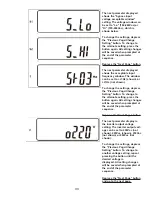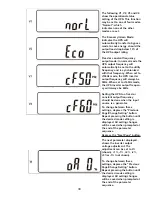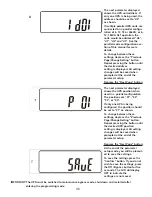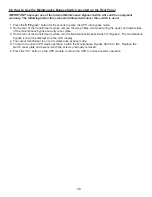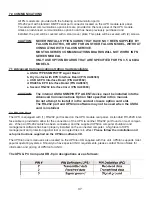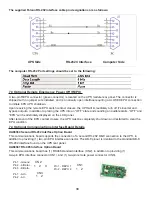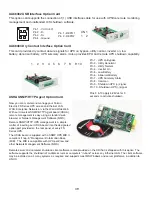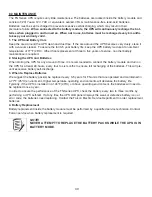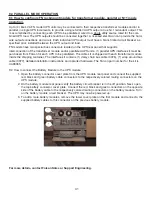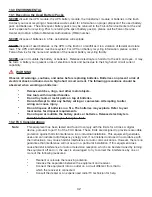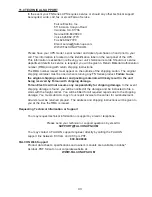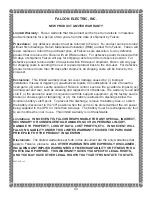
10.0 ENVIRONMENTAL
10.1 Recycling the Used Battery Packs
NEVER
discard the UPS module, the UPS battery module, the transformer module or batteries in the trash.
Contact your local recycling or hazardous waste center for information on proper disposal of the used battery
pack and batteries. The entire spent battery packs may be returned to the Falcon Service Center at the end
user’s expense for recycling. Prior to returning the spent battery pack(s), please call the Falcon Service
Center and obtain a Return Materials Authorization (RMA) number.
NEVER
dispose of batteries in a fire, as batteries will explode.
NEVER
dispose of used batteries or the UPS in the trash or a landfill as it is a violation of federal and state
laws. The UPS and batteries must be recycled. For UPS and battery recycling information, please contact
Falcon Service for the name and address of the nearest battery recycling facility.
NEVER
open or mutilate the battery or batteries. Released electrolyte is harmful to the skin and eyes. It may
be toxic. A battery can present a risk of electrical shock and burns due to their high short circuit current
capability.
WARNING
Observe all warnings, cautions, and notes before replacing batteries. Batteries can present a risk of
electrical shock and burns due to high short circuit current. The following precautions should be
observed when working on batteries:
*
Remove watches, rings, and other metal objects.
*
Use tools with insulated handles.
*
Do not lay tools or metal parts on top of batteries.
*
Do not attempt to alter any battery wiring or connectors. Attempting to alter
wiring can cause injury.
*
Do not dispose of batteries in a fire. The batteries may explode. Refer to your
local codes for disposal requirements.
*
Do not open or mutilate the battery packs or batteries. Released electrolyte is
harmful to the skin and eyes. It may be toxic.
10.2 FCC Considerations
Note:
This equipment has been tested and found to comply with the limits for a Class A digital
device, pursuant to part 15 of the FCC Rules. These limits are designed to provide reasonable
protection against harmful interference in an industrial installation. This equipment generates,
uses and can radiate radio frequency energy and, if not installed and used in accordance with
the instructions, may cause harmful interference to radio communications. However, there is no
guarantee that interference will not occur in a particular installation. If this equipment does
cause harmful interference to radio or television reception, which can be determined by turning
the equipment off and on, the user is encouraged to try to correct the interference by one or
more of the following measures:
*
Reorient or relocate the receiving antenna.
*
Increase the separation between the equipment and receiver.
*
Connect the equipment into an outlet on a circuit different from that to
which the receiver is connected.
*
Consult the dealer or an experienced radio/TV technician for help.
42






